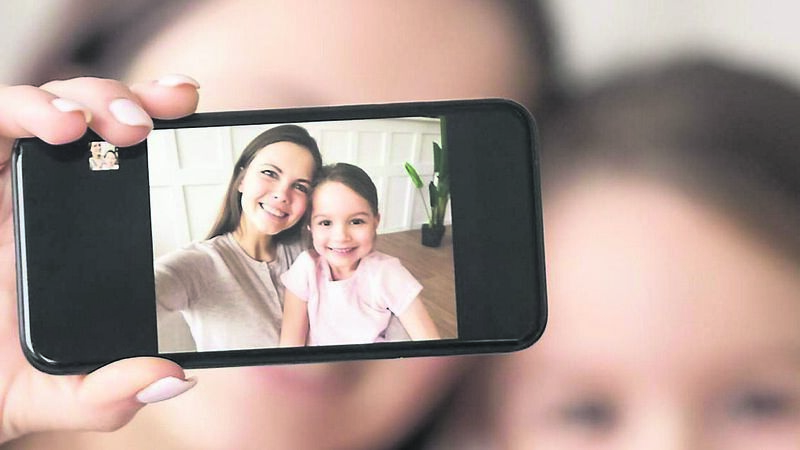Kathriona Devereux: Hey! You! Stop cluttering up our iCloud with so much data

Looking through my childhood photos from the 1980s, most are tableaus of straight-backed children in line formation smiling formally, so whatever special occasion that warranted getting the camera out could be captured for posterity.
I see myself dressed as Dracula with one fake eye unstuck hanging by a piece of Sellotape, posing outside Blarney Castle with visiting relatives home from New York, and swamped by a godmother’s wedding dress outside a church.
There are a few reportage-style photos of me and friends doing homework or sitting on picnic blankets in the garden, but generally most photos document a special occasion or outing.
It is 14 years since Apple launched the first iPhone and changed the way we all take photos and conduct our lives online. Smartphones have put cameras in our pockets, ready to be whipped out to capture any moment - a child’s messy face after dinner, a pretty cloud formation in the sky, a coffee on a Tuesday morning.
I try to curb my phone use and not check it all the time or use it to take a photo at daily cute moments. Partly because my brain gets addled by the constant distraction of the phone, partly because I want to try and use my brain to remember special moments, and mainly because most of those photos will never see the light of day once I’ve taken them.
Every couple of years, I print out a big batch of photos of the kids, but all the other insignificant snaps just sit on my smartphone indefinitely.
There has been a lot of talk recently about an energy crunch arising from the higher cost of gas, and EirGrid, who are responsible for managing the national electricity grid, warned that the expansion of data centres could account for a third of all electricity demand in Ireland by 2030.
The number of operational data centres in Ireland has increased from 41 to 70 in the last few years. A data centre uses about the same amount of electricity to power a small town or 50,000 homes.
The data industry predicts that carbon emissions from its sector will grow to about 2.2% of Ireland’s total emissions by 2025. Which may not sound much, but Ireland has committed to cut our emissions by 7% every year to 2030, and trying to make lots of electricity to keep data centres running while at the same trying to make lots of extra renewable electricity to electrify and decarbonise our heat and transport systems is madness!
.
Instead of storing things to the hard drives of our computer, we now store them to Google Drive, iCloud or Microsoft’s OneDrive.
If our computers go kaput, our data is therefore safe on the cloud, it can be accessed from different devices and can be easily shared with friends, family or work colleagues.
Youtube alone has 720,000 hours of video uploaded to it’s servers every day - that’s a lot of funny cat videos!
The digital transformation to online learning and working has been supported by data centres and we rely on them hugely to run our modern lives, but I suspect there is a lot of digital clutter sitting on servers that could be dumped.
The 15 blurry photos that your child accidentally took of their nostrils that were automatically uploaded to Google Photos exist somewhere. The emails from people you don’t even remember, or the delivery notes from parcels you received a decade ago, all have to be stored in a physical place, hence data centres.
For shame, I have 22,000 emails in my inbox dating back to 2008! There are probably a few hundred I’d like to keep for sentimental or professional reasons and the rest should go. I vow to do a digital clear-out before 2021 is out!
Managing our online lives means keeping on top of our digital ‘stuff’. A ‘digital detox’ can extend from limiting your phone use to deleting unimportant and meaningless messages, pictures and videos.
The global environmental NGO ‘Let’s Do It World’ organised a global digital clear-out earlier in the year. It estimated there are 3.6 billion Cloud users and if each of them transferred 1GB of data to external hard drives, it would mean a total of 3.5M TBs being freed up in the data centres, thereby saving enormous amounts of energy.
Something to think about when you are about to take the 400th video of your cat!







 App?
App?




